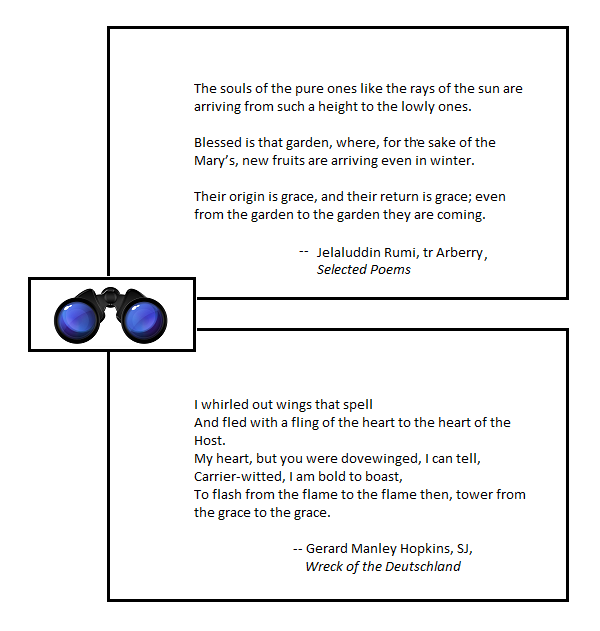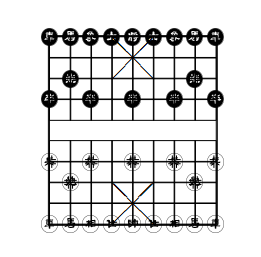Carl Jung on Play
Monday, April 17th, 2017[ by Charles Cameron — all i do is play / to play is to create / I am creature / I am pawn / < bows lifelong gassho >]
.
Here’s a key quote on play from Carl Jung, from Psychological Types, CW vol 6. #197:
My thanks to Mitch Ditkoff for pointing me to this fine quote.
**
The question arises, what is this process in which “The creative mind plays with the objects it loves”? There’s an object, right, and the mind, that much is coear — but does the mind observe the object? absorb it? analyzie it? play around with it?
If play is what we’re trying to understand, around would be the word sitting right next to it, so around may be what we should think about.
Around is context. Playing around is seeing in context, seeing from unexpected angels, seeing unexpected close connections. Here’s Arthur Koestler‘s diagram of play, which he thinks of as a diagram of creativity — which he idemntifies with bisociation, or the conjunction of two otherwise separate planes of thought:
You’ve likely seen it before: that’s my personal Diagram in Chief.
**
Okay, more basics. Play is how infants so richly learn and masters so richly express their mastery. It is rich, it masters and is mastered — “Thou mastering me God” says Hopkins in Wreck of the Deutschland, “giver of breath and bread; World’s strand, sway of the sea..”
**
As a game designer and a Brit with Jungian sympathies, I am also delighted with this other quote:
One of the most striking testimonies to the quality of the English spirit is the English love of sport and games in a classical sense and their genius for inventing games. One of the most difficult tasks men can perform, however much others may despise it, is the invention of good games and it cannot be done by men out of touch with their instinctive values. The English did it and, by heaven, they even taught us Swiss how to climb our own mountains and make a sport of it that made us love them all the more. And their Wimbledon, did they but know it, is in sort a modern version of an ancient ritual.
That’s from Laurens van der Post‘s Jung and the Story of Our Time, and game designer Mike Sellers shares my delight in it.
**
Yup:









